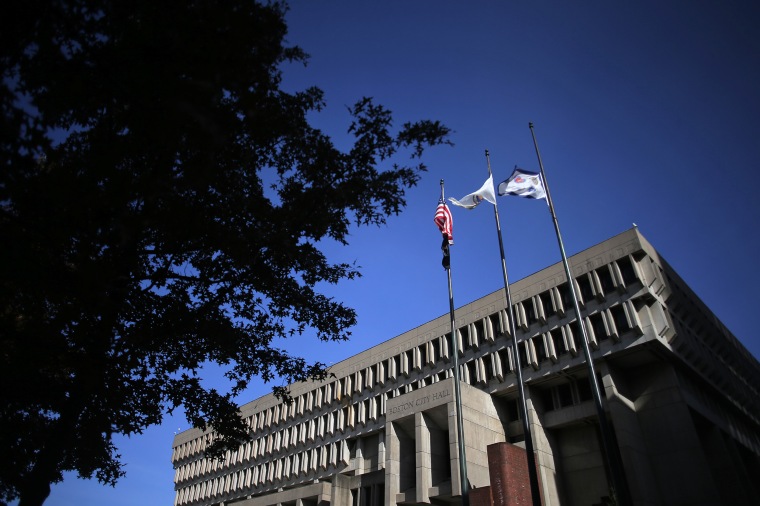The Supreme Court ruled unanimously on Monday that the city of Boston violated the Constitution when it refused to let a local organization fly a Christian flag in front of city hall.
While the case had religious overtones, the decision was fundamentally about free speech rights. The court said the city created a public forum, open to all comers, when it allowed organizations to use a flagpole in front of City Hall for commemorative events. Denying the same treatment for the Christian flag was a violation of free expression, it said.
“When the government encourages diverse expression — say, by creating a forum for debate — the First Amendment prevents it from discriminating against speakers based on their viewpoint,” Justice Stephen Breyer wrote in the decision.
“The city’s lack of meaningful involvement in the selection of flags or the crafting of their messages leads us to classify the flag raisings as private, not government, speech — though nothing prevents Boston from changing its policies going forward,” Breyer added.
The ruling was a victory for a group called Camp Constitution, which says part of its mission is “to enhance understanding of the country’s Judeo-Christian heritage.” The group wanted to raise a flag bearing a Latin cross during a one-hour event that would include speeches about Boston’s history from local clergy.
Its founder, Harold Shurtleff, applied to use one of three flagpoles in front of city hall. Two of them are for the flags of the United States and the State of Massachusetts. The city makes the third available to private organizations that conduct commemorations in the plaza in front of the building to celebrate the community’s diversity.

He sued after the city turned him down. Boston said the choice of flags on the third pole was an expression of the city’s views. Flying the Christian flag would amount to an unconstitutional government endorsement of religion, the city said.
But the Supreme Court said the city could not censor a religious message in what amounted to a kind of public form. Allowing the Christian flag to fly would not be an unconstitutional government endorsement of religion because it would merely treat religious and non-religious views the same, the court said.
“Under the Constitution, a government may not treat religious persons, religious organizations, or religious speech as second-class,” Justice Brett Kavanaugh wrote in his concurring opinion.
In a statement, a spokesperson for the city said it is “carefully reviewing the court’s decision and its recognition of city governments’ authority to operate similar programs. As we consider next steps, we will ensure that future City of Boston programs are aligned with this decision.”
Court records showed that the city exercised virtually no control over who could use the third flagpole. In the 12 years before Camp Constitution’s request, Boston approved 284 flag raising events with no record of any denials — until the one involving the Christian flag.
The issue of whose viewpoint was being raised on the flagpole was the critical one. When the government is speaking for itself, it is immune from claims that it violated free speech. But if it creates a public forum, it cannot discriminate against viewpoints.
The court has said that because slogans on car license plates are government speech, states can restrict the messages they bear. But it has ruled that the federal government’s grant of trademark protection is not government speech, so federal regulators cannot refuse to grant trademarks to offensive brand names.

